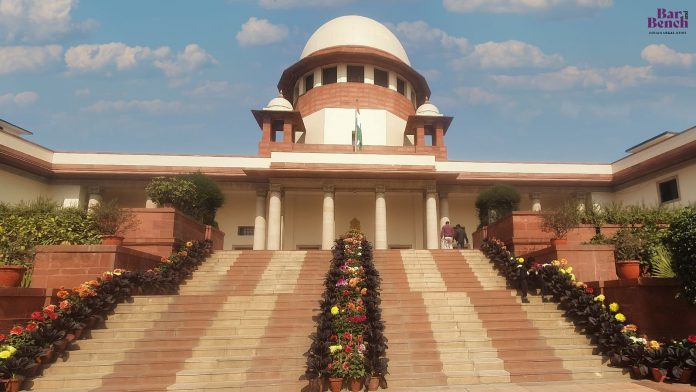This article is written by Kavana Rao from Symbiosis Law School, Noida. This article is an analysis of the PMLA Act, 2002 with respect to the case of OPTO Circuit India Ltd v Axis Bank & Ors.
Table of Contents
Introduction
Money Laundering is an illegal act of making large amounts of money coming from illegal sources, which appear to be from legitimate sources. The PMLA, 2002 was first enacted to fight against the criminal offence of legalising the income or profits derived from an illegal source. It authorises the public authority to confiscate the property derived from or involved in an illegal act.
Prevention of Money Laundering Act, 2002 (“PMLA”) : a brief overview
The Prevention of Money Laundering Act was enacted on 17th January 2003 by the then NDA Government. The primary objective of the Act was to prevent and keep a check on money laundering, to confiscate any kind of proceeds derived from the crime. The Bill was referred to the Department-related Standing Committee and later after considering all its recommendations, it was introduced in the Lok Sabha from where it took the course from being a bill to an Act. PMLA, 2002 was finally brought into operation on July 1, 2005.
The PMLA was amended multiple times, the most recent ones being through the Finance Act, 2015, Finance Act, 2018 and Finance Act, 2019.
Punishment for money laundering
Section 4 of the PMLA, 2002 describes the punishment under PMLA,2002. Under the Section, “any person committing the offence of money laundering shall be punishable with rigorous imprisonment for a term which may extend from three years to seven years and shall also be liable to pay a fine which may extend to five lakh rupees”. Also, if the proceeds of the crime involve any offences under the Narcotic Drug and Psychotropic Substance Act, 1985 which is under Paragraph 2 of Part A of the Schedule, then the maximum punishment may extend to 10 years.
Section 17 of the PMLA
The condition of Section 17 of the PMLA is that the Director or such other Authorised Officer in order to exercise the power of freezing the account or property under the Section, should be on the basis of information in his or her possession. In addition to this, they must also have a reason to believe that such has committed acts relating to money laundering and thus, having the requirement to seize any record or property found in the investigation or search, and such belief of the officer must be recorded in writing.
- Section 17, sub-section 1A of the PMLA provides that the Officer Authorised may make an order to freeze such record or property where it is not practicable to seize such record or property.
- Sub-section 2 of the PMLA gives that, that after the investigation and seizure or upon issuance of the freezing order, the concerned Authorised Officer must forward a copy of the reasons given along with the material which is in his or her possession, to the Adjudicating Authority is a sealed envelope.
- According to sub-section 4, the authority seizing or freezing any record or property under the above two sections mentioned must undertake it within a period of thirty days from such seizure or freezing. If records or property are seized or frozen after the thirty days limit, then a case can be filed before the Adjudicating Authority asking for the retention of the record or property which was previously seized under Section 17(1A) and Section 17(2).
The case of OPTO Circuit India Ltd. v. Axis Bank & Ors.
This case of OPTO Circuit India Ltd. Vs. Axis Bank & Ors (2021), came as an appeal before the Supreme Court. It was adjudged by a bench consisting of Hon’ble Justice A.S Bopanna, Hon’ble Justice S.A Bobde, Hon’ble Justice V Ramasubramanian.
The present case is about the freezing of bank accounts or other property under the Prevention of Money Laundering Act. Under Section 17 of this Act, an officer must have enough reasons through the information at his disposal, to believe that a person has committed an act that is related to money laundering and finds the need to seize or freeze the record or property found in the investigation conducted.
Facts of the case
The facts of this case are that the CBI initiated investigations against the appellant for the commission of an offence under the PMLA and accordingly proceedings were initiated by the Enforcement Directorate for the offence of money laundering. The ED directed the Respondent bank to freeze the accounts of the Petitioner or the appellant, to track the money trail and to check the further layering of proceeds. When the petitioner challenged before the Karnataka High Court and sought the bank accounts to be unfrozen for the purpose of making statutory payments and salaries of the employees, the High Court held that the action initiated against the Petitioner under the PMLA was competent. However, the High Court did not examine if the procedure followed while freezing the account was as per the PMLA, thus leading the petitioner to file an appeal before the Supreme Court.
The contention of parties to the case
The learned counsel of the appellant contended that under Section 17 of the PMLA, the Director or other such Authorised Officer must have a reason to believe and appropriate information that must be communicated, that such a person has committed an Act relating to money laundering, to freeze such record or property. In addition to this, it further explained that freezing of the bank account will also require the same procedure as mentioned in the statute since a bank account being considered as proceeds of crime would fall under the ambit of property and records. By proving this to the bench, the counsel further went on to explain that the procedure under Section 17 was not complied with by the Officer Authorised. Apart from the communication which states that the Officer was investigating the case and required relevant documents for the same, there was no other information or formal communication which was indicating the recording of the belief of commission of the act of money laundering and placing before the Adjudicating Authority or for filing an application after ordering for the freezing of the account. Therefore, the freezing of accounts was made in disregard to the legal requirements and thus not sustainable.
The Additional Solicitor General made attempts to contend that the freezing of the account was valid and sustainable under Section 102 of the Code of Criminal Procedure, which has been exercised and as such the freezing of the account would remain valid.

Findings of the Court
The Court turned down the argument of the Additional Solicitor General contending under Section 102 of the CrPC. The Court observed that it was the contention of one of the respondents that PMLA was a stand-alone statement, therefore the power has to be exercised and the procedure under it has to be complied with. In addition to this, when there is a power under the special enactment like the PMLA, then the power under the general law does not arise.
In addition to this, the Court observed that the freezing of accounts would require the same procedure as that of a bank account. This is said because the bank account containing the alleged “proceeds of crime” would fall under the ambit of “property “ and “records.”
The Court also emphasised that if a statute or a provision requires a task to be done in a particular manner, then that procedure must be followed and not any other method. This was further proved by citing Chandra Kishor Jha v. Mahavir Prasad and Ors (1999), in which it was observed that if a statute is required for a thing to be done in a particular manner, then it had to be done in that manner and no other manner.
Since, the appeal brought by the appellant was to unfreeze the account for paying various statutory dues such as Provident Fund, Professional Tax, Gratuity, LIC Employees’ deductions as well as salaries, the Court held that the freezing order was illegal. The Court authorised the appellant to pay the dues while enabling the ED to freeze the account again, after complying with the procedural requirements.
Conclusion
To sum up, the order in the present case is a prime example of the importance of following the due process. Huge weightage was laid on following the procedure for freezing the property or proceeds under Section 17 of the PMLA. This shows that the PMLA not only prevents the offences of money laundering but also provides protection to the person accused under the Act.
References
- https://legislative.gov.in/sites/default/files/A1974-02.pdf
- https://www.indiacode.nic.in/bitstream/123456789/2036/1/A2003-15.pdf
LawSikho has created a telegram group for exchanging legal knowledge, referrals and various opportunities. You can click on this link and join:
https://t.me/joinchat/J_0YrBa4IBSHdpuTfQO_sA
Follow us on Instagram and subscribe to our YouTube channel for more amazing legal content.
 Serato DJ Crack 2025Serato DJ PRO Crack
Serato DJ Crack 2025Serato DJ PRO Crack










 Allow notifications
Allow notifications


